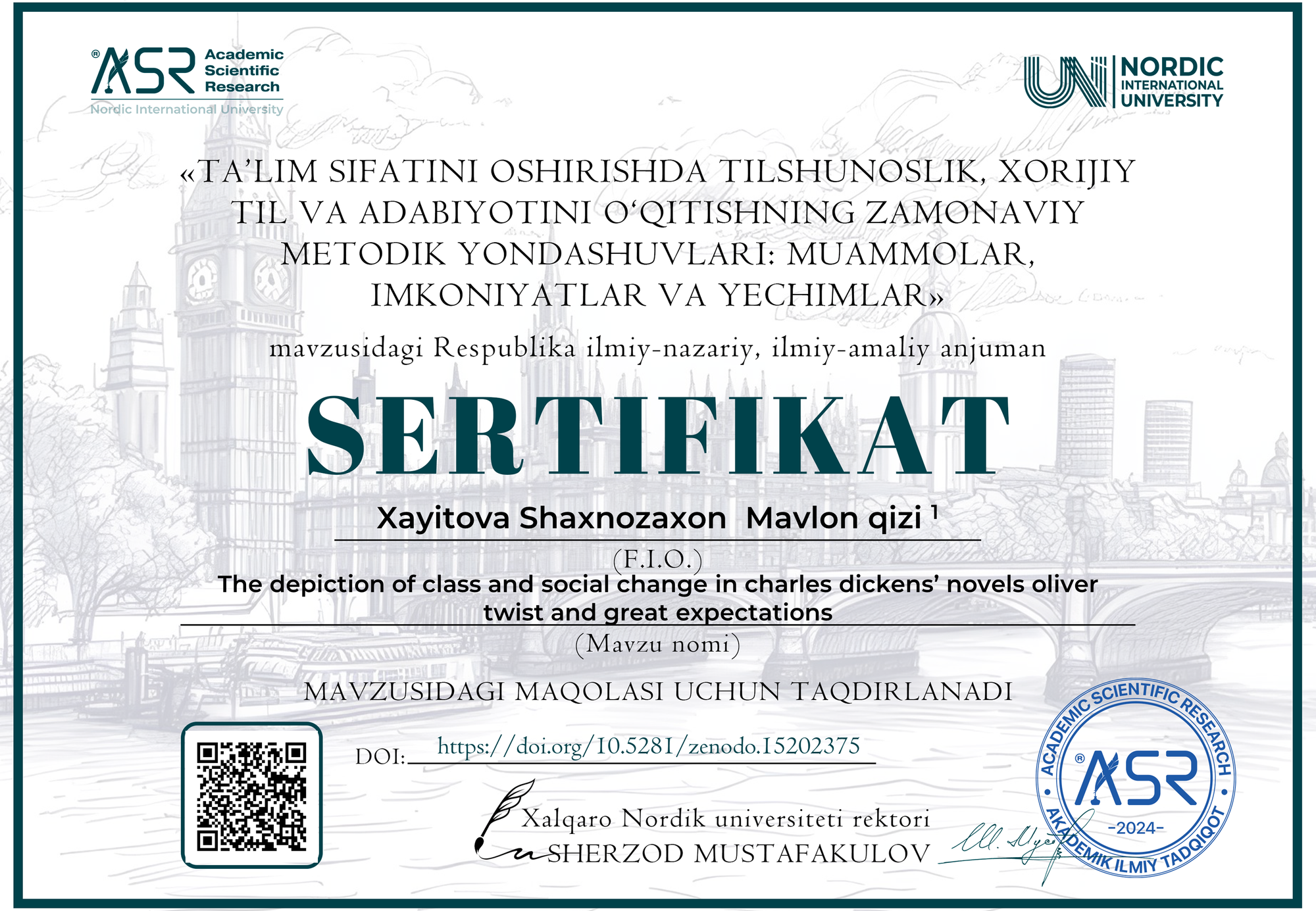Xayitova Shaxnozaxon Mavlon qizi 1

DOI: https://doi.org/10.5281/zenodo.15202375
Zenodo community: https://zenodo.org/records/15202375
Nordic_press journal: https://research.nordicuniversity.org/index.php/nordic/article/view/2357
MAQOLANI YUKLAB OLISH
SERTIFIKATNI YUKLAB OLISH
REVIEW:
This paper offers a thoughtful and well-structured analysis of Charles Dickens’ critique of class division and social mobility in two of his most celebrated novels, Oliver Twist and Great Expectations. The author demonstrates a strong grasp of both the literary texts and the socio-historical context of Victorian England.
Strengths:
Clear Research Focus: The research questions are clearly articulated and provide a focused direction for the comparative analysis.
Depth of Literary Analysis: The paper successfully delves into the moral, psychological, and societal dimensions of class struggle as presented in Dickens’ works.
Integration of Scholarly Sources: The literature review demonstrates engagement with a variety of critical perspectives, including works by Gareth Stedman Jones, Asa Briggs, and Catherine Waters. These references enrich the discussion and provide solid academic grounding.
Balanced Comparative Approach: The contrasts drawn between Oliver Twist and Great Expectations—particularly in the representation of systemic poverty versus the personal costs of upward mobility—are insightful and well-supported by textual evidence.
Multilingual Abstracts: Including both English and Russian annotations enhances the paper’s accessibility for a wider academic audience, especially in an international university setting.
Areas for Improvement:
Proofreading for Grammar and Style: While the content is strong, the paper would benefit from careful proofreading to correct minor grammatical errors and punctuation issues (e.g., unnecessary spacing around commas and inconsistent capitalization of titles like Great Expectations).
Clarity in Citation Style: Although sources are listed, in-text citation formatting could be standardized (e.g., using MLA or APA consistently) to improve academic rigor.
Expansion on Female Characters: The paper briefly mentions Nancy and Estella in the recommendations. Including a more developed section on how female characters contribute to Dickens’ critique of class and morality would add further depth.
More Detailed Discussion of Dickens’ Personal Experience: While historical context is touched upon, a deeper exploration of Dickens’ own life and how it influenced his portrayals of poverty could strengthen the argument.
Conclusion:Overall, this is a commendable academic paper that contributes meaningfully to Dickensian scholarship. It successfully bridges literary analysis with socio-historical critique, offering fresh insights into the enduring relevance of class discourse in literature. With some refinement in language and citation consistency, the paper would be well-suited for academic publication or presentation at a literary conference.



